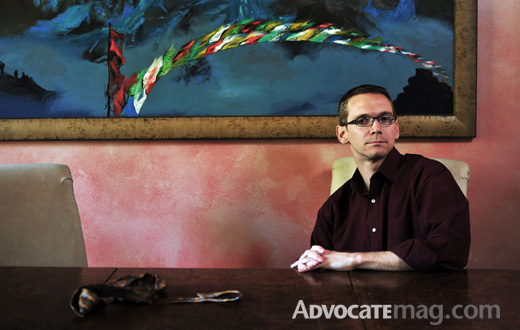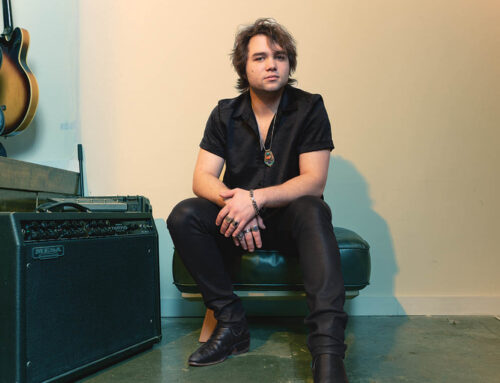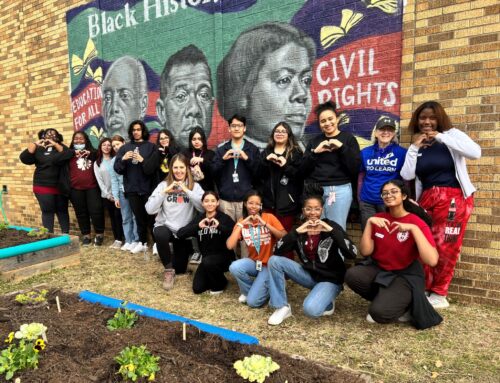For the last 10 years, Mike Morath has been CEO of a software company that streamlines a federal meal program for schools. He started volunteering with Big Brothers Big Sisters about five years ago. And he says he feels it’s his duty to serve children. That’s why he’s stepping down from a lucrative job and committing 10 years to serve on the Dallas Independent School District Board of Trustees. He was elected without opposition and takes office this month.
Are you from Dallas?
I’m from Garland. I went to Garland High School and was in the International Baccalaureate program there. The Fighting Owls.
You’ve got a 10-year plan to serve on the school board. Why?
The short answer is, it’s my calling in life. A few years ago, I went to India and helped put in water wells. In Mexico, I helped at an eye clinic for orphans and street children. I’ve done a lot of work over the years helping kids. I’ve been a Big Brother for the past five years. I’ve always been passionate about helping kids. To be an effective school board trustee, you can’t just like children. You have to know something about management, and you have to understand the policies.
Where do you think this passion for helping children comes from?
It’s sort of the way I was raised. I was born to two parents who loved me. I attended good schools, and I had everything I ever needed. I had no control over that. It’s sort of the luck of the draw. You don’t get to choose where you’re born. Oh but for the grace of God, I could’ve been born a lost boy of Sudan. It’s on those of us who can do something to actually do something.
How do you think DISD can overcome its financial woes?
We’re spending about half our money on teachers. That means we’re spending $700-plus million on stuff other than teachers. Now, some of that is needed. But we just seem to have lost our way. If you compare spending in the U.S. to spending in Japan, for example, they spend 77 percent of every education dollar on teachers. They spend less than we do, and they get more for it. Put more money in classrooms. Give principals a great deal more authority to manage their campuses. That brings perils of its own because it requires a skill set that not all of our principals necessarily have. As we move in that direction of local school control, you’ve got to concentrate on their skills and training. Perhaps the most critical ingredient is the principal. If you have 225 world-class principals, you have 225 world-class schools. A good principal can get everyone motivated and focused, to throw out their TAKS workbook and pay attention to teaching kids how to think. This is what a good campus leader can do. That is probably the single most valuable thing in education, but it’s hard to come by.
How do you think your management background can help?
I understand the value of metrics and of having the right metrics. The job of metrics is to relentlessly keep employees focused on the mission. You have to develop metrics that tie them to be relentlessly focused on their mission. Your real objective is not to get people to pass tests. It’s raising sentient beings who can think for themselves. We’ve erred on the side of numeric analysis, and we’ve forgotten that the purpose of numeric analysis is to keep people focused on their missions. And you’ve taken away the human interaction that principals and deans of instruction should have with teachers. The feedback loop is broken. And everybody loses. It is a case study in how to destroy a school system. DISD is losing 100,000 students. That is the legacy we’re leaving to the city of Dallas. There are 150,000 students in DISD. A third don’t graduate. A third do, but they’re not prepared. It’s a catastrophe. If you’ve got a teacher in there who loves the kids … that’s a work of art. It is our job to make sure they’re successful at their jobs. Find, retain and train great principals. And then find, retain and train great teachers.
No one is running against you. No one else wants this job. Why do you want it?
You know, I get that question a lot: “Why in God’s name would you do this?” People tell me they think DISD is hopeless and we should just write it off. We’ve come to a point where no one trusts the school district. Eighty-seven percent of our kids are free and reduced lunch. The middle class has left the school district, for the most part. There are great things going on in our schools that no one knows about.
Preston Hollow Elementary has 98 percent TAKS passing rates. It has the performance of a good private school. But no one’s putting their kid in that school because they don’t trust it. The DISD brand is so bad that even when good things happen, people don’t believe it.
So the school district needs new PR?
Yes. PR is important. We have these things called SBDMs — site-based decision making committees, and they’re made up of people from the community. Well, SBDMs are mostly a waste of time. They’re ineffective and don’t do much to provide managerial support. I would like to see them expanded and given more duties. For example, task an SBDM with increasing volunteerism and doing PR for the school. At elementary schools, they could increase early childhood PTAs.
What can the community do to help schools?
We’ve got to recognize that schools can’t do it alone. When middle class kids leave the classroom, their education continues. But when poor kids leave the class, that’s it for them. We’ve got to recognize that those larger societal factors are part of the conversation: hunger, health, homelessness. My Little Brother has moved 25 times in five years. How are you going to get a good education that way? We should look at extending the school year, the school day, after school programs. These kids are going be 20-somethings working in our city. The mayoral debate is all about economic development, and they’ve got it all wrong. Spruce High School is in a run-down neighborhood. Imagine if Spruce High School was the high school where everyone wanted to send their kids because that’s a phenomenal high school. What would happen to that neighborhood? When you get the campuses right, the neighborhoods follow.







